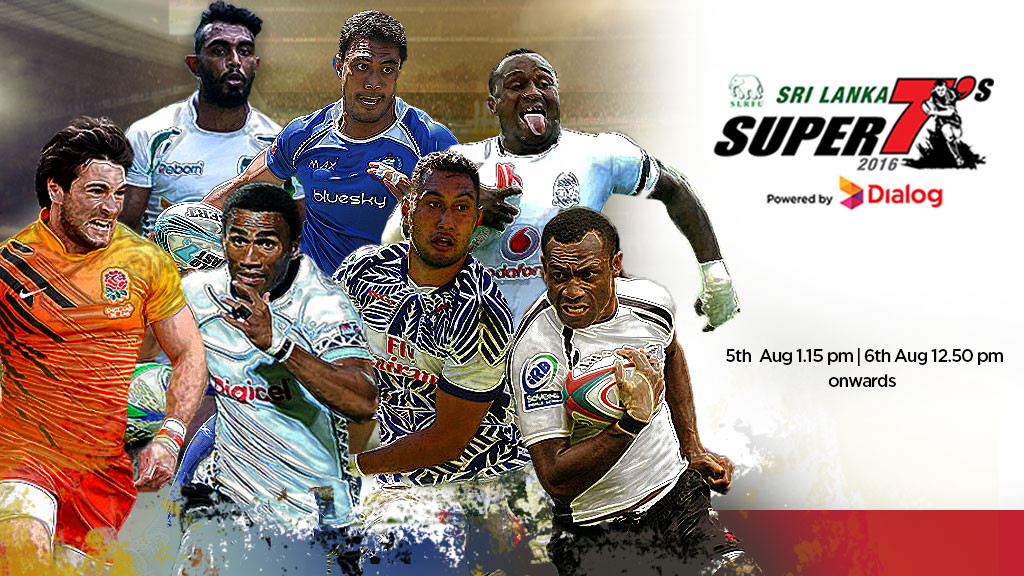As the sporting world descends on Rio de Janeiro for the Games of the XXXI Olympiad, the rugby community is about to re-enter the Olympics through the Rugby Sevens portal.
Closer to home we are all basking in the glory of the Young Tuskers who created history this week by winning Sri Lanka’s first ever Rugby Cup championship final in Malaysia.
A magnificent achievement that will make them a marked team in Hong Kong next week. And locally we are about to witness the first edition of the Sri Lanka Super 7s Rugby Championship at the Race course grounds in Colombo.

Let us state some obvious differences between sevens and 15 a side rugby. As the name suggests there are only seven players on each team competing at any one time. The field dimensions remain the same but the time on the paddock is considerably shorter, seven minutes a half in all games except the final which has 10 minute halves.
The scrum is made up of three forwards from each side and line outs are formed by a minimum of two players per team. The scoring has the same values for tries, conversions, drop goals and penalties but conversions are to be taken within 40 seconds of the try being awarded as a drop kick only.
Passing, breakdown and offside laws apply but the number of reserves available is five with only three being allowed to take the field. Issuing a yellow card will penalise the offending team to two minutes of playing time without their infringing player.
That, in a nut shell, is the basics of Rugby Sevens and will allow you to enjoy the coming matches. If you’d like to converse with a ruggerite about how their team is performing you will need to understand their language and understand the objectives being achieved during play. Obviously the aim of any team is to finish the game with more points than the opposition, but how teams manipulate defences to create space or two on one situations comes down to team work, preparation and the execution of core skills under pressure.
A basic play that you may see in the coming weeks is the reload. It comes about when an attacking team spreads the ball wide and has the way forward cut off by the defence. Possession is key in Rugby Sevens so many teams will avoid contact and instead pull the ball back and move it to another part of the field where there may be more space.
Generally in the reload an attacker, called the short runner, will run a line that takes him close to the ball to get the defence to compress. There will be a player to pull the ball back to, he’s called a pocket, and the man inside him is the pivot. Both the pocket and the pivot need to move into a position of depth early and this enables them to attack another area quickly. If the short runner can compress the defence onto one side of the field there will be space somewhere else.
Skill execution is paramount. Having space in an area of the field and being able to exploit that space relies on basic catch and pass, running lines and communication. Teams will use moves that drag defenders out of position, they will wrap around other attackers to create an overlap or cut in from the outside to stop defences in their tracks.
All of this is done at break neck speeds and requires supreme fitness levels because when fatigue sets in skill execution drops. So the team that holds on until the end with the points on the board walks away with the trophy.
Bring it on I say. Good luck to the Young Tuskers, to the local teams in the Sri Lanka Super 7s Rugby Championship and to all the Olympians who have a chance to recite the Olympic creed: “The most important thing in the Olympic Games is not to win but to take part, just as the most important thing in life is not the triumph but the struggle. The essential thing is not to have conquered but to have fought well.”















